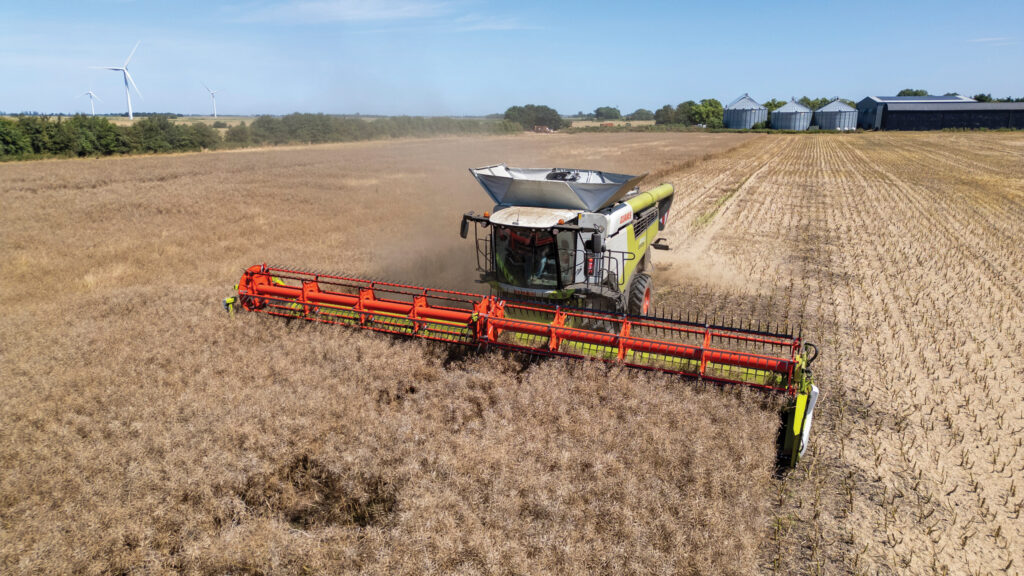Promising OSR crop revives industry calls for new growers
 © GNP
© GNP Many farmers have moved away from growing oilseed rape (OSR) in recent years, with the total GB planted area estimated at 236,000ha in 2025, which would make it the smallest for more than four decades.
However, early harvest results have indicated more favourable yields, prompting merchants to encourage new growers to consider the crop.
Yields have been reported between 2.5t/ha and 6t/ha so far this season, putting it generally ahead of a 2.8t/ha UK average for last year’s crop.
See also: Harvest 2025: OSR yields well but wheats are mixed
A combination of better establishment and reduced pressure from cabbage stem flea beetle (CSFB) has helped to renew confidence for many growers.
Delivered OSR prices have been trading between £410/t and £415/t for harvest, and in excess of £420/t for November delivery.
Ex-farm OSR prices, collected by Farmers Weekly on 18 July, ranged from £385/t in Lincolnshire to £402/t in Cambridgeshire and Bedfordshire.
Farmer-owned co-operative United Oilseeds reports that stable prices and improved yields could make OSR the most profitable crop for some of its growers this season, and is working with industry to reinvigorate the oilseeds sector.
De-risking strategy
Frontier Agriculture aims to capitalise on the renewed optimism within the oilseeds sector, with the merchant renewing its de-risking partnership for harvest 2026.
The scheme was introduced last year to reduce the financial burden and risk on farm businesses when growing OSR.
It returned this year and Frontier has said it intends to expand the scheme further and provide additional support for companion crops.
Frontier will provide the seed for the scheme, and growers will only pay for the oilseed and companion crop seed that has established by 31 October.
It plans to remove the upfront costs for growers, with payment for seed due 12 months after delivery at £90/ha for OSR and £33/ha for the companion crop.
Frontier sustainability manager Jim Knightbraid said the merchant planned to expand its support offering to fill the funding gap left by the recent closure of the Sustainable Farming Incentive scheme.
He said: “We want to ensure our customers are able to make the most of the strong market opportunities that are available, and to do that, oilseed rape needs to be a commercially sustainable option on farm.
“Our unique position in the market means we can widen our offer of support to fill that funding gap for companion cropping – it’s the right thing to do to ensure growers have access to the solutions they need.”
